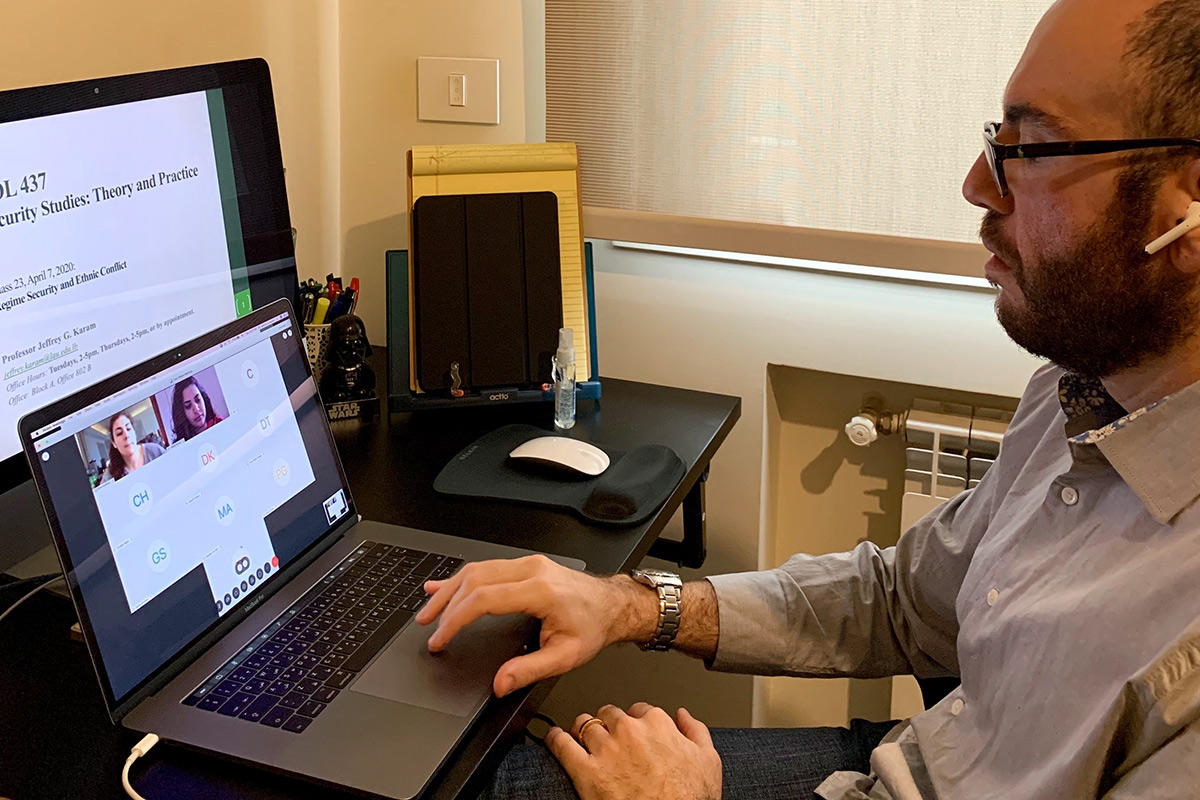Dr. Jeffrey G. Karam, Assistant Professor of Political Science
Lessons to draw from current events.

In our current climate, I’m bringing in additional focus to our political science course content. One example is questioning whether states alone are responsible for tackling COVID-19 or why we should consider the important role of non-state actors, including civil society organizations, and international organizations in tackling global crises.
Another shift relates to the use of podcasts, short films, online discussion boards, and important articles (both from scholarly and policy sources) that tackle earlier responses to global health crises to investigate what we can draw from these experiences. The inclusion of ‘other’ learning tools such as these could help bridge the gap between traditional scholarly works and the world around our students.
It’s a wonderful time to be teaching Political Science and for students in this major. But it’s also a stressful period during which we need to question whether our established norms and expectations on increased interdependence and cooperation between states will be suspended temporarily as the world scrambles to find immediate and largely short-term solutions to the spread of COVID-19. Students are trying to strike a balance between looking at the world ‘as is,’ from a realist standpoint, and how it ‘ought to be,’ through a liberal lens.
Current events challenge this optimism, with all its shortcomings, pushing us as educators and citizens to come to terms with the harsh reality of how the global health pandemic is currently unfolding around the world.